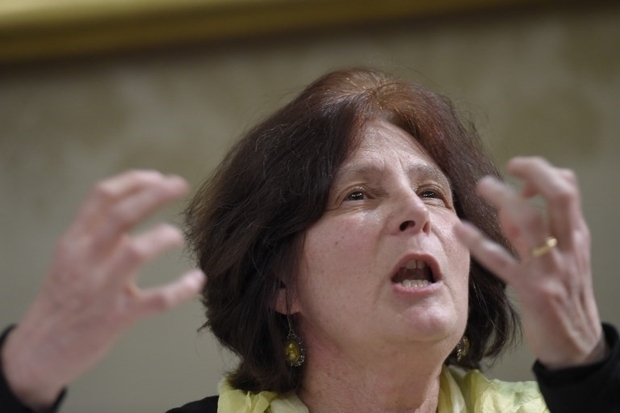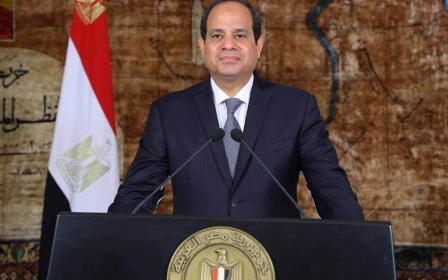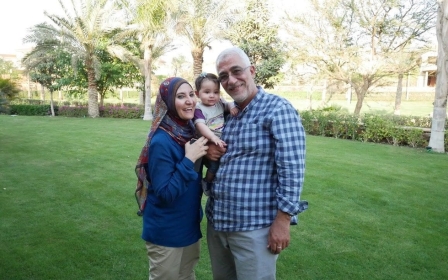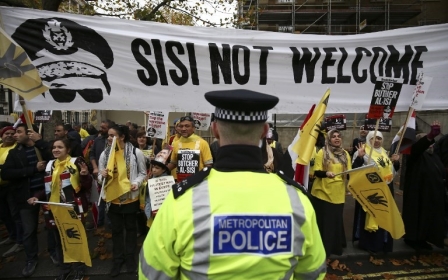Will justice ever be done for Giulio Regeni and all the Regenis in Egypt?
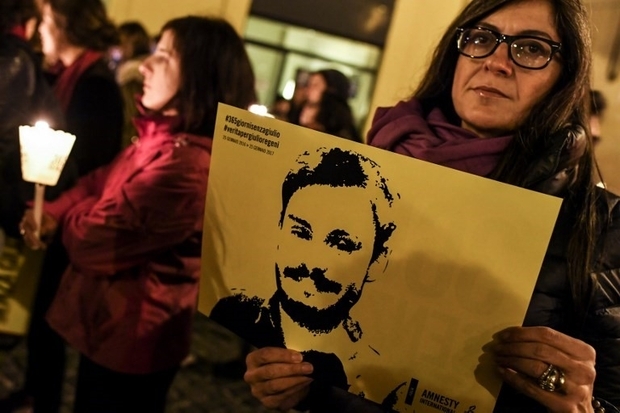
Almost three years after the kidnapping, torture and murder of Italian researcher Giulio Regeni in Cairo, Italian prosecutors have announced the indictment of seven Egyptian officials allegedly involved in the killing of the Cambridge student.
The decision came shortly after the tenth meeting between Italian and Egyptian attorneys ended in a deadlock as a result of Egypt's repeated attempts to either delay or sabotage the investigations.
Frustrated at the Egyptians' inability or - most probably - unwillingness to offer any additional information and support to the inquiry, Italian Public Prosecutor Giuseppe Pignatone decided there was no other solution left but to proceed singlehandedly by formally accusing the seven officers.
Failure of diplomacy
According to the Italian daily Il Corriere della Sera, the decision marks the failure of the “diplomatic way” adopted so far. Italy's governments – three different prime ministers presided over the case since January 2016 – have assumed an equivocal position, often criticised by Regeni’s family for being too soft in their approach to the case.
The official line adopted by two former prime ministers, Metteo Renzi and Paolo Gentiloni, maintained a firm request for cooperation and transparency by the Egyptians in handling the case, which appeared to involve interior ministry officers and security agents.
It is not far-fetched to assume that both Egyptian and Italian authorities hoped that time would kill the case and subdue public outrage, leaving Regeni’s murder an unsolved mystery
The unofficial line was aimed at achieving a solution that would appease the family and the public opinion, while at the same time preserve diplomatic and economic relations with an historic and strategic partner like Egypt. It is not far-fetched to assume that both sides hoped that time would kill the case and subdue public outrage, leaving Regeni’s murder an unsolved mystery.
When Giuseppe Conte's government took office at the end of May, the unofficial line became official. In June, Matteo Salvini, the interior minister, known for his notorious straightforwardness, said he understood "the request for justice of Regeni’s family, but Egypt was too important a partner for Italy".
It was a sobering moment for those who had applauded Salvini's harsh criticism of the former governments' inaction when he described it as "a farce". Once in power, Salvini quickly learnt to give human rights issues the flick for realpolitik. In other words, the murder in his view became a family problem, rather than a national issue.
Insufficient evidence
In the meantime the Egyptian authorities, led by Giza prosecutor Ahmed Nagy, were given plenty of time to do their homework, put together a convincing probe and find a way out of the impasse by identifying the culprits.
But the investigation, as framed by the Roman prosecutor, was clearly leading to the highest echelon of power in Egypt's Ministry of Interior and the National Security Agency, the very core of President Sisi’s regime of fear and terror. Hence the Egyptian attempts to buy time, hide clues, bring up red herring theories and ration information to the Italians for as long as possible.
In their final meeting last week, the Egyptian authorities could not explain why essential video frames of the instants when Regeni disappeared in the Cairo metro station on 25 January 2016 were missing from the video recordings handed over to the Italian prosecutors. In addition the Egyptian prosecutor said Cairo did not intend to prosecute the officials in the suspects list provided by the Italians. The evidence is not sufficient to justify a formal trial, in their view.
"Egyptian law does not recognise what is called 'the record of suspects'," the state information service (SIS) said, citing an anonymous member of the judiciary. The statement was titled “Julio [sic] Regeni’s case: charges should be based on evidence and not suspicions."
The announcement that Pignatone and his team would proceed nonetheless with a formal indictment came as a surprise to both the Italian and Egyptian authorities. Prime Minister Conte rushed to say that he discussed the case with President Sisi only a few weeks ago and he had received assurances that Cairo was serious about the inquiry.
Paola Regeni is the most glaring example of how a mother’s grief will leave no stone unturned to find justice
However, neither the Egyptian nor the Italian authorities had taken into account the public prosecutor's determination and the relentless quest of Regeni's parents for the truth against all odds. Since her son's murder, Paola Regeni has never been seen shedding a tear.
She is the most glaring example of how a mother’s grief will leave no stone unturned to find justice. "I cannot grieve, I will not, until I find out who killed Giulio and why," she said. "I am fighting for my son and all the Giulios of Egypt."
Justice for Guilio
Wearing a yellow scarf, which has become the symbol of Amnesty’s campaign for Giulio, Paola and Claudio Regeni have been travelling to all corners of the world seeking help, talking of Giulio, raising awareness about human rights violations under the Sisi regime.
"So, tell me, what are you doing," she said addressing a UN gathering in Geneva last June, challenging the audience of diplomats and human rights lawyers. "What are you doing for Giulio? And for all those Egyptians, who are kidnapped and tortured and killed every day?" she said.
The corpse of the 28-year old Italian student was found on 3 February 2016 in a ditch in the outskirts of Cairo. The corpse, naked from the waist down, bore the signs of torture that human rights watchdogs quickly likened to those inflicted on detainees in Egyptian prisons.
Regeni, a PhD student at Cambridge, had disappeared on his way to see a friend on 25 January, on the fifth anniversary of the revolution that in 2011 ousted long-time ruler Hosni Mubarak - a day when Cairo was locked down and security forces watched every corner of the city.
Regeni was researching independent trade unions at Cambridge University. The aloofness of the university and the British authorities over Regeni’s case has led critics to surmise that he may have been the unsuspecting victim of a spat between intelligence services. However his family has always rejected this theory, despite criticising the university for having abandoned its student.
Whether Regeni’s case will be solved it is hard to foresee. One thing is for sure. Paola Regeni will continue to await justice, and with her, the many mothers of Egypt whose sons haven’t made it back home.
- Barbara Bibbo is an Italian journalist living between Doha and Geneva. She has worked at Al Jazeera English for eight years, doing extensive research on international issues and world-leading figures for the Talk to Al Jazeera show. She started her career in print, as a correspondent for Il Messaggero Veneto, the Gulf News and Italian News Agency ANSA from the Gulf region.
The views expressed in this article belong to the author and do not necessarily reflect the editorial policy of Middle East Eye.
Photo: Activists of human rights organization Amnesty International hold a picture of Giulio Regeni and candles as they take part in a demonstration in front of Montecitorio, the Italian Parliament, in Rome on 25 January 2017 (AFP)
This article is available in French on Middle East Eye French edition.
New MEE newsletter: Jerusalem Dispatch
Sign up to get the latest insights and analysis on Israel-Palestine, alongside Turkey Unpacked and other MEE newsletters
Middle East Eye delivers independent and unrivalled coverage and analysis of the Middle East, North Africa and beyond. To learn more about republishing this content and the associated fees, please fill out this form. More about MEE can be found here.



